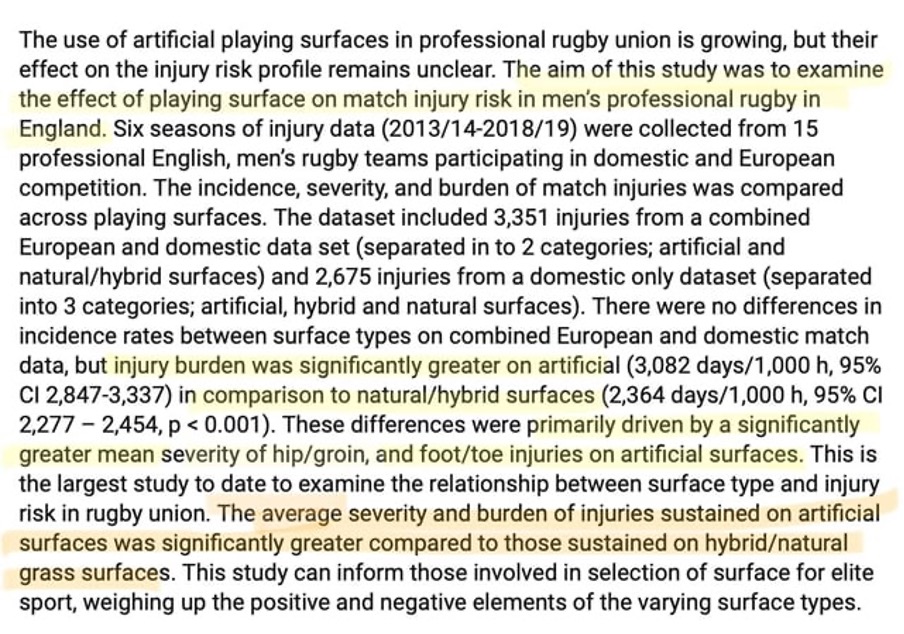Recently I had a conversation with a friend who had just come back from Wimbledon, also a rugby man. He suggested changing ends in a rugby match every 10 minutes, with a minute’s break to take on water and energy bars. No half time interval to compensate, as the coaches would get their input throughout the game. I initially thought it was a crazy idea but there might be some merit in it. He said if changing ends is good enough for tennis every two games, then it should be good enough for rugby.
It would certainly take away the uncertainty that choosing ends has in a rugby match, in that the wind might change direction. Don’t laugh because it happened to me on more than one occasion.

Add to that the difficulties of playing into a strong sun, low in the sky during the winter months for 40 minutes only to find it has gone down and is no help in the second half.
The diehards are perfectly entitled to reminisce that rugby is an outdoor winter game, and as such the weather is an important part of the decision-making process that team captains have to learn.
In which case, why are international sides able to have the roof closed in Cardiff at the National Stadium. Personally, I would never allow that to happen, because rugby is an outdoor winter game, and the weather plays an important part of that.
Of course, international rugby has become an ‘experience’ for spectators who increasingly pay a fortune to be there. Consequently, they must not have their entertainment ruined by anything as shocking as a downpour, a very strong wind, or worst of all the two together!!
Even the rugby ball has changed unbelievably in the past few years. Gone is the slippery bar of soap to be replaced by a user friendly tacky, almost sticky retentive ball. No more the leather nightmare, and few if any will remember when even to adjust it whilst catching meant a knock on. That is definitely a change for the better.
We could add to this, the playing surface that the professional level are increasingly using is a modified astro, artificial grass surface. We can’t possibly have the spectator’s enjoyment ruined by a muddy ball, or a churned up pitch, now can we!!
How many readers have had the experience of coming off the pitch and chatting to parents where mother asks afterwards, ‘who was that we were talking to’ such was the amount of caked mud.
There is no thought given to the players who are at greater risk of injuries on an astro than on a muddy pitch, or are they?
A report I read was interesting, and can be seen now.

‘From a biomechanical perspective, artificial turf exhibits higher frictional coefficients than natural grass resulting in higher foot and ankle injury rates. Concussion rates on turf are decreased compared to natural grass due to lower G-max values on well-maintained artificial surfaces. Hip, knee, and overall injury rates are equivalent between the two surfaces except in specific populations including top level players that exhibit increased knee injury rates on artificial turf. Due to these tradeoffs, the authors suggest that athletic organizations with funding to support professional groundskeeping should consider investing in natural grass due to athlete preference and decreased injury risk. In contrast, organizations without sufficient funding for professional groundskeeping operations may consider investing in modern artificial turf due to its associated long-term benefits and decreased costs.’
What was most interesting was that the paragraph above was written in the USA, so what about rugby football.
Compare this to the following report from England.

There is no doubt the risk of injury is greater, but those responsible for the financial well being of the game will cheerfully argue that entertainment is what matters. It brings the crowds[money] in, entertains them, and sends them home happy to come again. No dire, low scoring, muddy scrum fest on astro, that wouldn’t do at all.
Does anything else matter in the world of big business, where the top stars are now paid huge amounts of money to perform like circus animals until worn out, injured, or exhausted, they are discarded, and replaced.
Am I a cynic, perhaps in this instance Yes.
